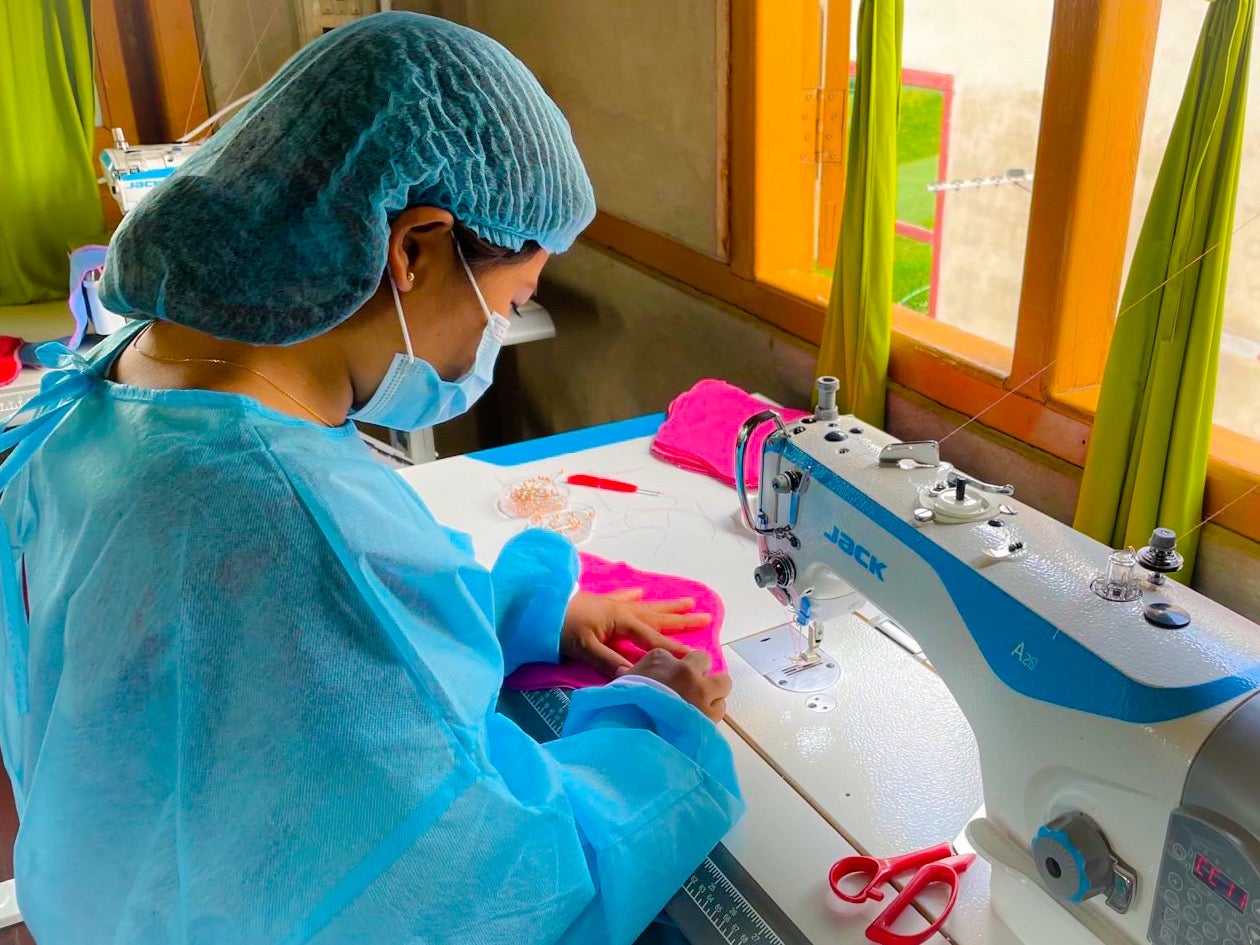“Menstrual hygiene is essential for women and adolescent girls. Being a displaced person staying at the IDP camp, I have limited access to sanitary pads and hygiene products. Without having any income, I could not afford to buy these things unless someone gives them to me for free. Sometimes, I have to use pieces of cloth as a hygiene kit during my period. It is not hygienic and convenient, but I have no choice. Without proper menstrual hygiene support, we women are losing our dignity,” said Ei Ei, a displaced woman from one of the internally displaced person camps in Kayah State, located in the eastern part of Myanmar.
Ensuring that sexual and reproductive health and rights are an integral part of the emergency response in a humanitarian crisis is essential – it must not be overlooked. Without sufficient access to menstrual health support, women may not only suffer serious health complications, but they may also experience stigma and rejection from the community and loss of dignity. In addition, lack of menstrual health supply can limit the mobility of women and girls, thus negatively affecting their ability to access to required basic services and humanitarian support, including education, health services, and livelihood opportunities.
The Myanmar Humanitarian Needs Overview 2021, identified more than 1 million people to be in need of humanitarian assistance. This number included some 336,000 displaced people (of whom 29 per cent are women, 20 per cent are girls) in camps or IDP sites. Since then, the number of displaced people and people in need of humanitarian assistance has increased significantly due to the ongoing crises across the country. In June 2021, the Addendum to the 2021 Myanmar Humanitarian Response Plan identified an additional two million people to be assisted by the emergency response in new areas and this number is unfortunately likely to increase again.

Amid the operational challenges since February 2021, the United Nations Population Fund (UNFPA), with its implementing partner organizations in the country, has planned strategically and innovatively to ensure the continuation of essential sexual and reproductive health services to the vulnerable population in affected areas. With UNFPA support, one of the partner agencies has introduced the Safe Pad Pilot Project in Kayah and Rakhine States to fulfil the menstrual health and hygiene needs of vulnerable women and girls in conflict-affected areas. This pilot project also aims to promote income-generating opportunities for the local women.
“What is particularly unique about this project is – to set up a basis for the sustainable scale up of locally produced menstrual health management products for women and girls at reproductive age. It is not only just the production of anti-microbial reusable pads for safe menstrual hygiene, but it also benefits local women through a “buy-back” methodology by the organization to create income generation opportunities for them. It has dual impacts on empowering local women through livelihood support and ensuring sexual and reproductive health and rights for the women and girls at reproductive age”, said Nan, a Project Manager.
Under this pilot project, 20 local women were provided training in Kayah State and 19 women in Rakhine State. They have produced 3,600 safe pads and distributed to 900 beneficiaries in Kayah and Rakhine Sates. Targeting the population in need, women and girls from IDP camps receive menstrual hygiene management (MHM) kits comprised of Safe Pads package designed for day and night use, reusable masks, hand gel and additional essential items such as underwear, bucket, and laundry detergent and manual instructions for sustainable use of safe pad and general information on good menstrual health management.
“I am benefitting a lot from this project. Women in our community have income from safe pads production. Our products are delivered to the women and girls from the IDP camps who need sustainable menstrual health hygiene management supplies and information. As a local youth, I feel empowered,” said Ma Wai, a young woman from the community who is supporting the project.
UNFPA, the United Nations sexual and reproductive health agency, is working with local and international partner organizations to strengthen sexual and reproductive health care and ensure it remains at the center of the humanitarian and development nexus.
*Name changed for privacy and protection.


